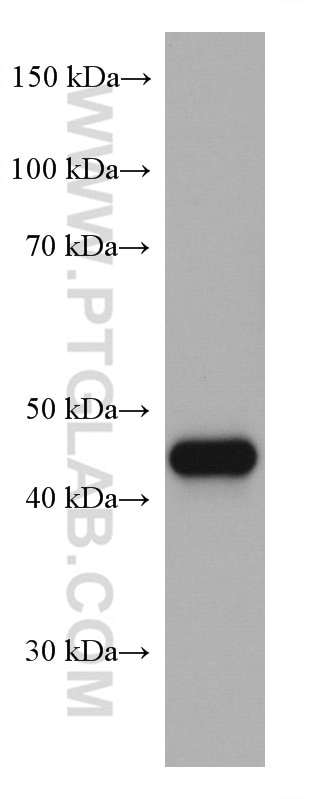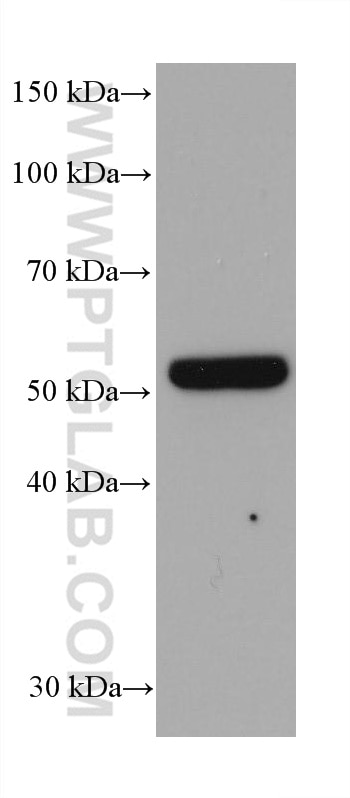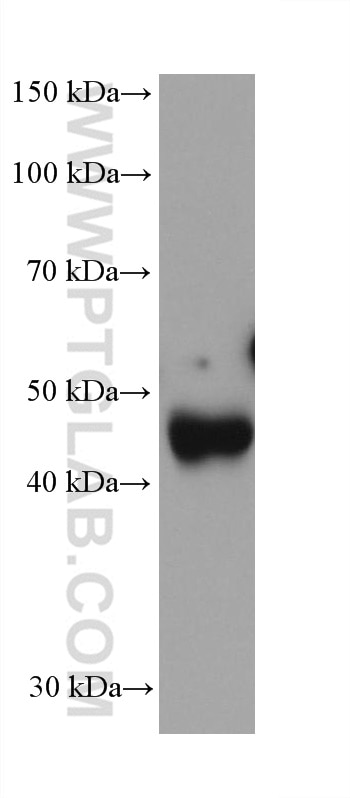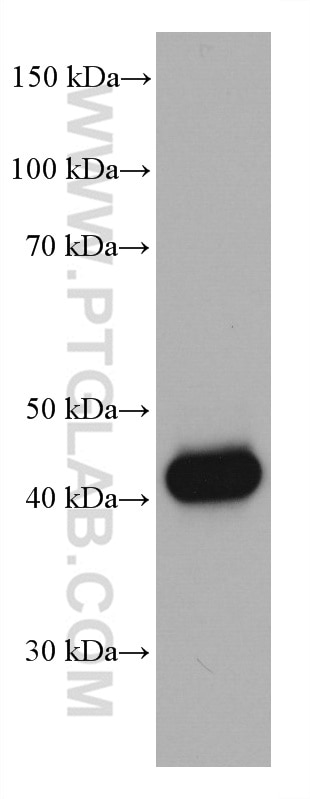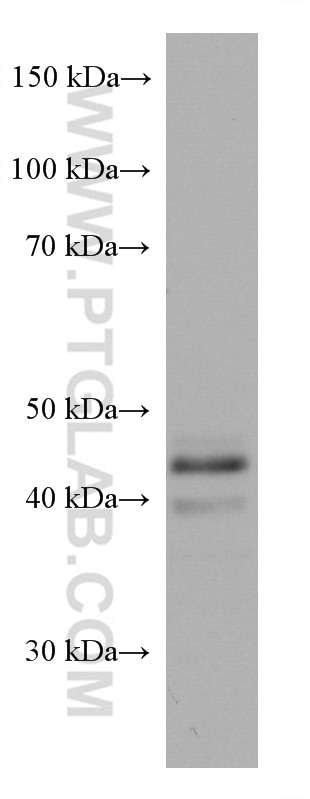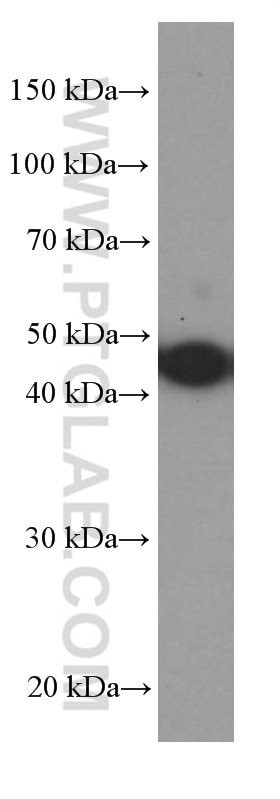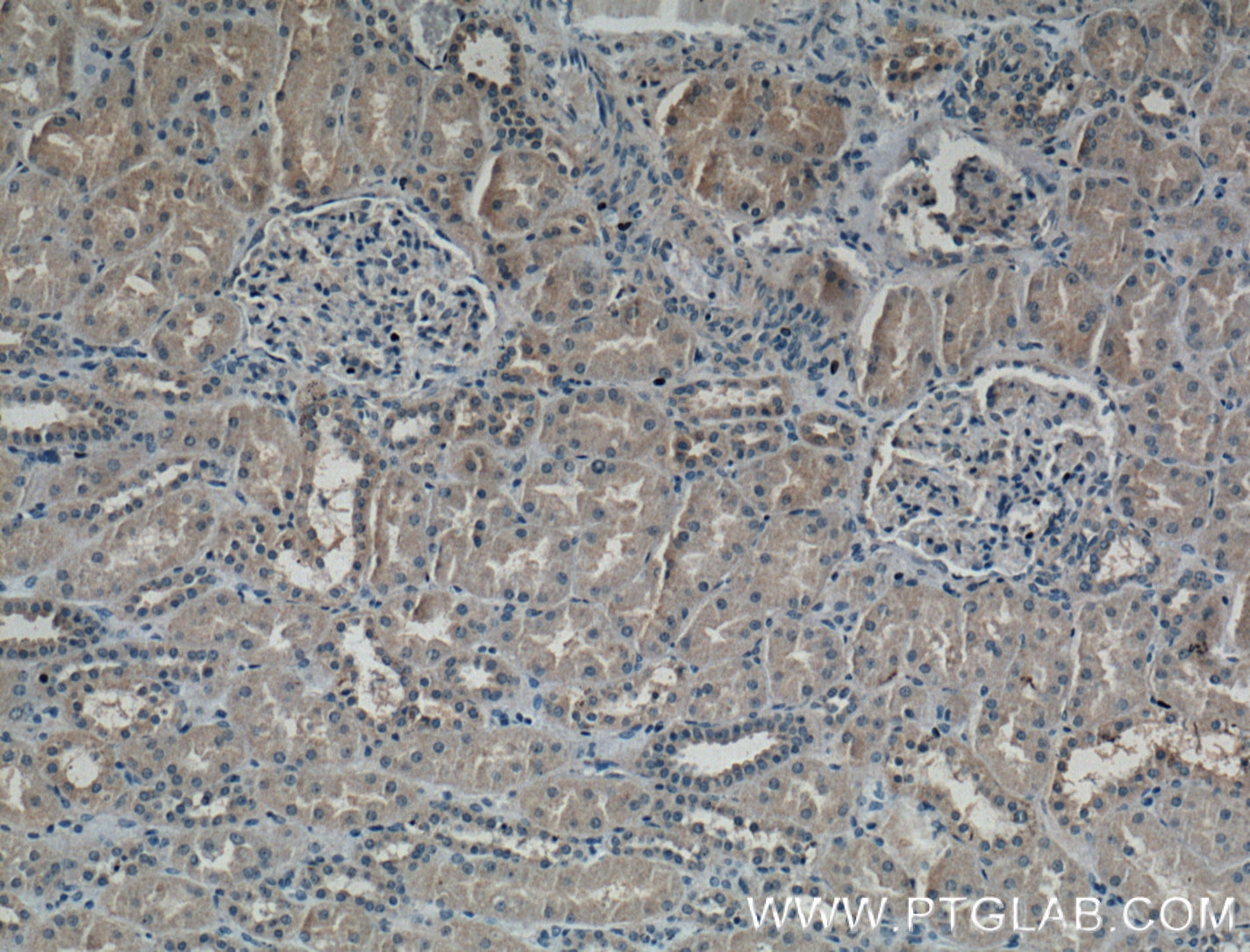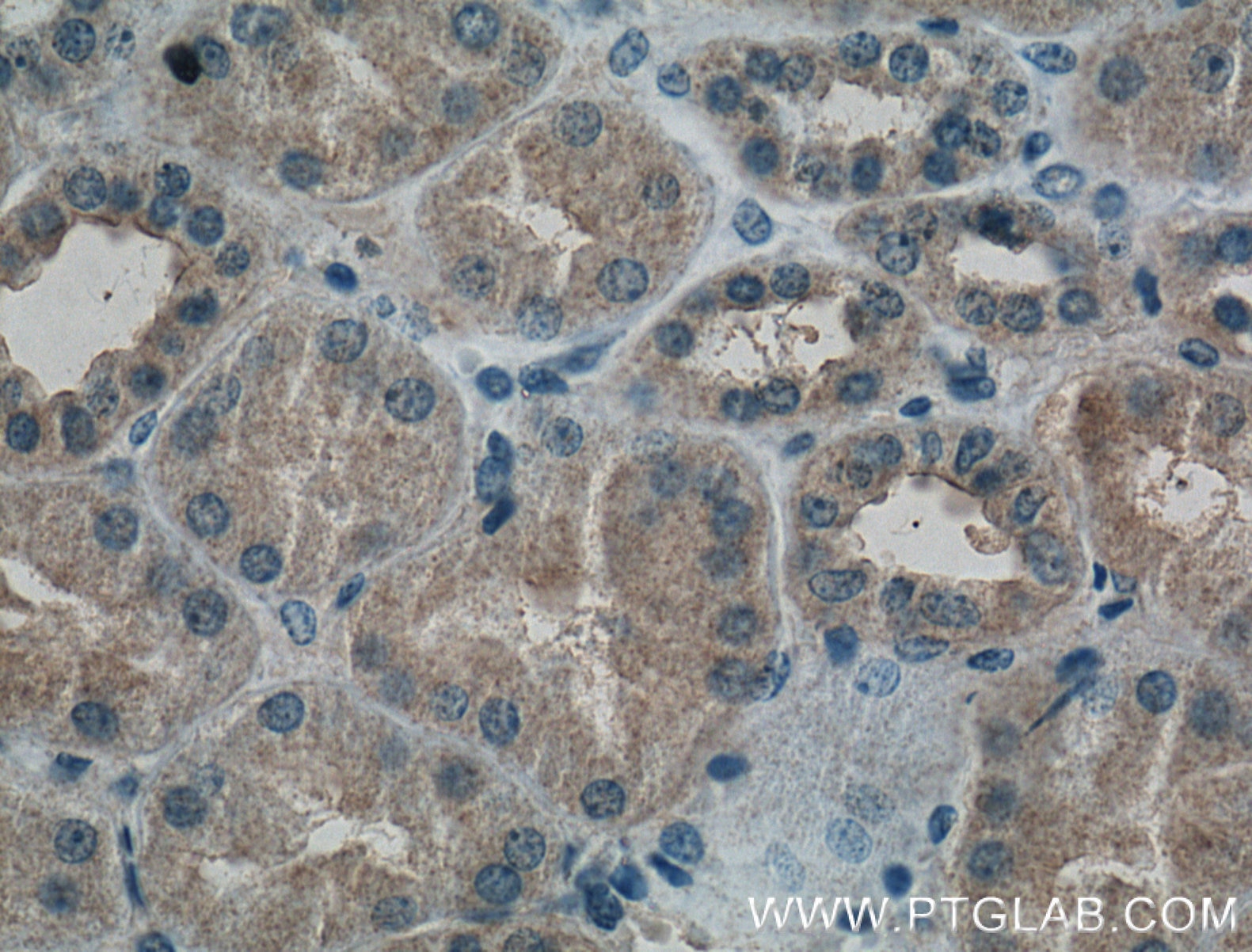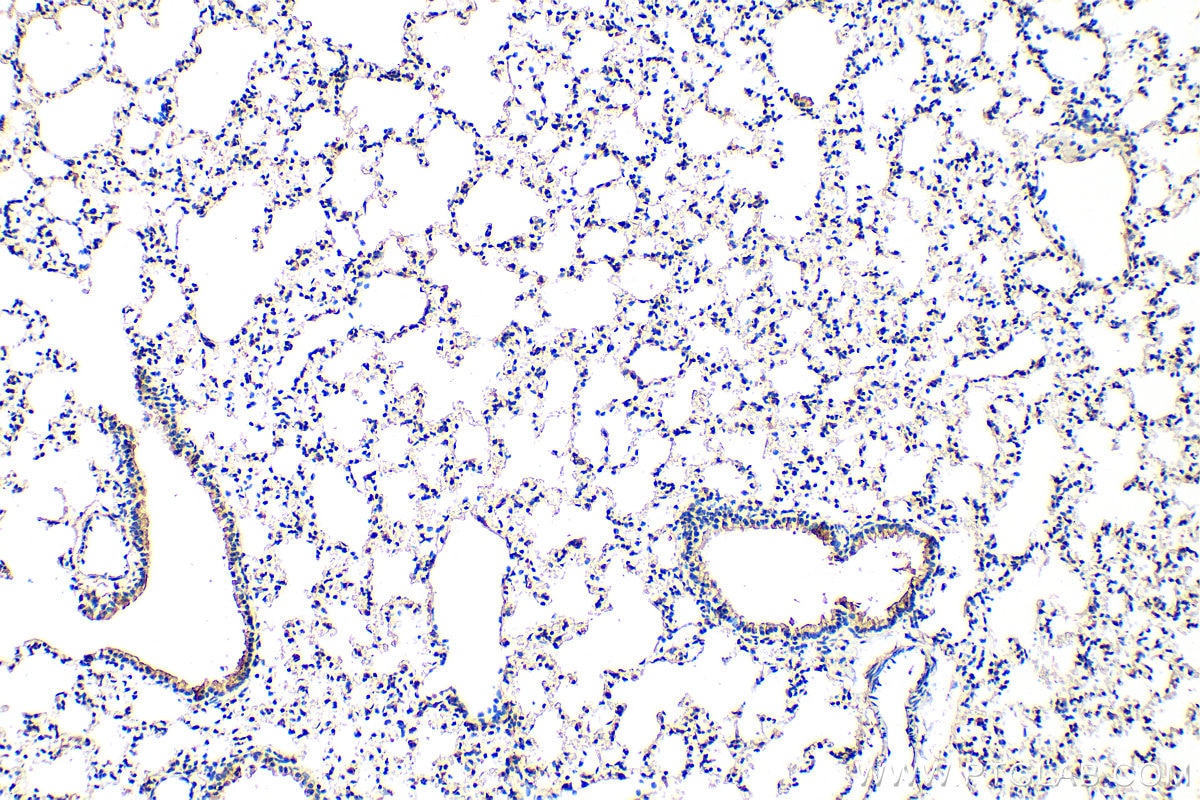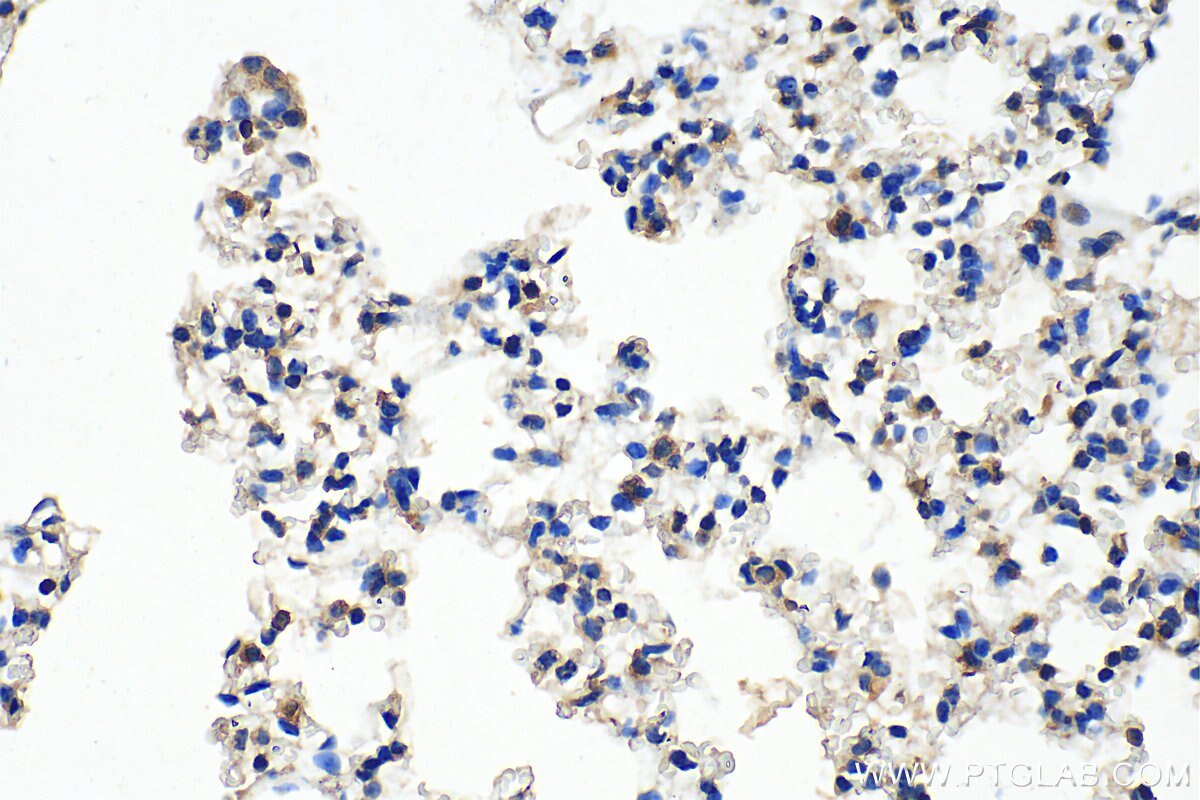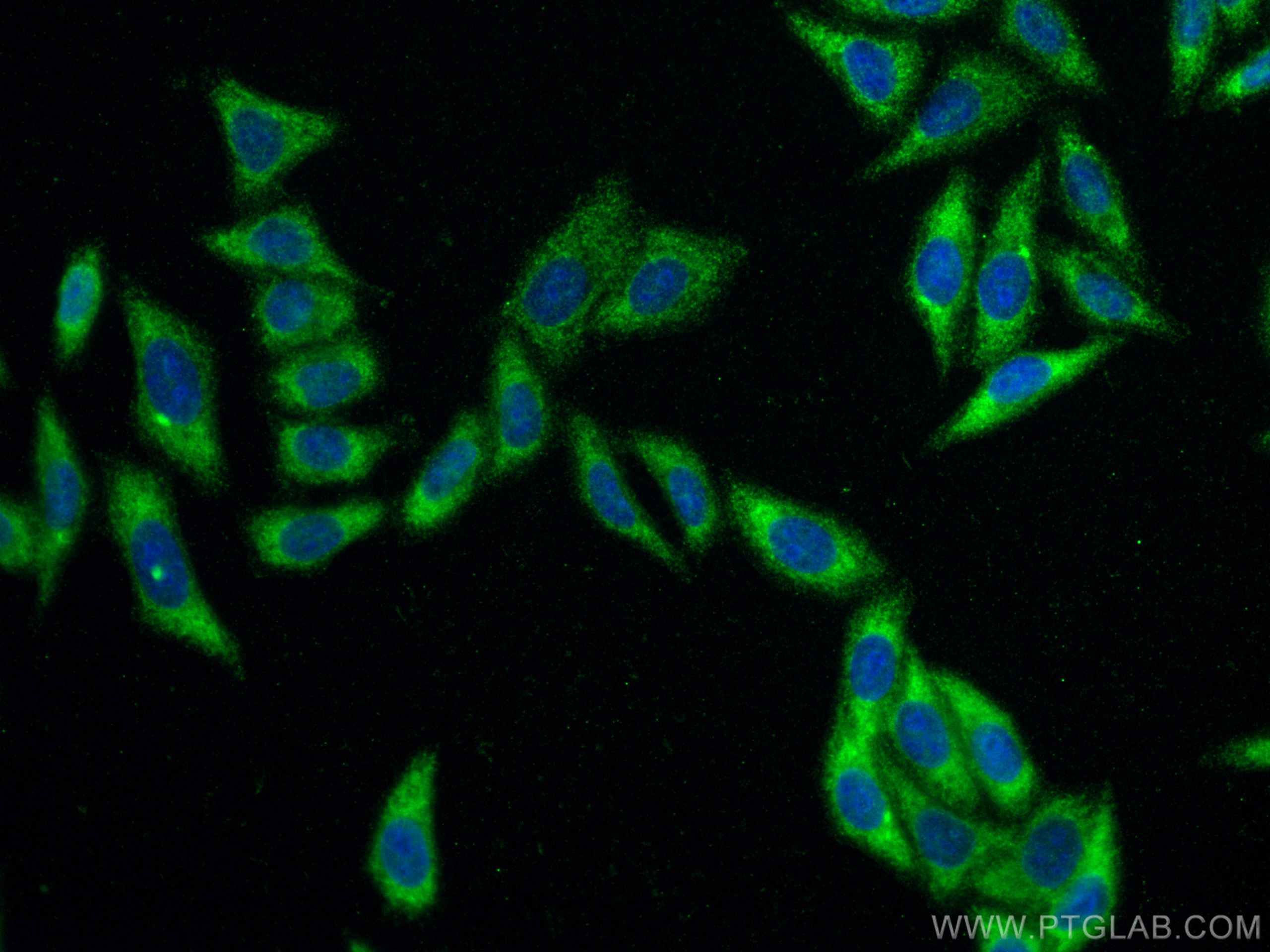Anticorps Monoclonal anti-PAI-1
PAI-1 Monoclonal Antibody for IF, IHC, WB, ELISA
Hôte / Isotype
Mouse / IgG1
Réactivité testée
Humain, porc, souris et plus (1)
Applications
WB, IHC, IF, ELISA
Conjugaison
Non conjugué
CloneNo.
1H4A5
N° de cat : 66261-1-Ig
Synonymes
Galerie de données de validation
Applications testées
| Résultats positifs en WB | plaquettes de sang périphérique humain, cellules HuH-7, cellules SH-SY5Y, cellules U-251, tissu hépatique de porc |
| Résultats positifs en IHC | tissu rénal humain, tissu pulmonaire de souris il est suggéré de démasquer l'antigène avec un tampon de TE buffer pH 9.0; (*) À défaut, 'le démasquage de l'antigène peut être 'effectué avec un tampon citrate pH 6,0. |
| Résultats positifs en IF | cellules HepG2, |
Dilution recommandée
| Application | Dilution |
|---|---|
| Western Blot (WB) | WB : 1:5000-1:50000 |
| Immunohistochimie (IHC) | IHC : 1:50-1:500 |
| Immunofluorescence (IF) | IF : 1:200-1:800 |
| It is recommended that this reagent should be titrated in each testing system to obtain optimal results. | |
| Sample-dependent, check data in validation data gallery | |
Applications publiées
| WB | See 12 publications below |
| IHC | See 2 publications below |
| IF | See 2 publications below |
Informations sur le produit
66261-1-Ig cible PAI-1 dans les applications de WB, IHC, IF, ELISA et montre une réactivité avec des échantillons Humain, porc, souris
| Réactivité | Humain, porc, souris |
| Réactivité citée | rat, Humain, porc, souris |
| Hôte / Isotype | Mouse / IgG1 |
| Clonalité | Monoclonal |
| Type | Anticorps |
| Immunogène | PAI-1 Protéine recombinante Ag22411 |
| Nom complet | serpin peptidase inhibitor, clade E (nexin, plasminogen activator inhibitor type 1), member 1 |
| Masse moléculaire calculée | 402 aa, 45 kDa |
| Poids moléculaire observé | 45-50 kDa |
| Numéro d’acquisition GenBank | BC010860 |
| Symbole du gène | SERPINE1 |
| Identification du gène (NCBI) | 5054 |
| Conjugaison | Non conjugué |
| Forme | Liquide |
| Méthode de purification | Purification par protéine G |
| Tampon de stockage | PBS avec azoture de sodium à 0,02 % et glycérol à 50 % pH 7,3 |
| Conditions de stockage | Stocker à -20°C. Stable pendant un an après l'expédition. L'aliquotage n'est pas nécessaire pour le stockage à -20oC Les 20ul contiennent 0,1% de BSA. |
Informations générales
SERPINE1, also named Plasminogen activator inhibitor type 1 (PAI-1), is a member of the serine protease inhibitor (SERPIN) superfamily. PAI-1 is the principal inhibitor of tissue plasminogen activator (tPA) and uPA, and hence is an inhibitor of fibrinolysis. Defects in this gene are the cause of plasminogen activator inhibitor-1 deficiency (PAI-1 deficiency), and high concentrations of the gene product are associated with thrombophilia. The mature 379-residue protein had a calculated unglycosylated molecular mass of 42.7 kD. Three putative glycosylation sites were found.
Protocole
| Product Specific Protocols | |
|---|---|
| WB protocol for PAI-1 antibody 66261-1-Ig | Download protocol |
| IHC protocol for PAI-1 antibody 66261-1-Ig | Download protocol |
| IF protocol for PAI-1 antibody 66261-1-Ig | Download protocol |
| Standard Protocols | |
|---|---|
| Click here to view our Standard Protocols |
Publications
| Species | Application | Title |
|---|---|---|
Int J Mol Sci Identification of Impacted Pathways and Transcriptomic Markers as Potential Mediators of Pulmonary Fibrosis in Transgenic Mice Expressing Human IGFBP5. | ||
Am J Respir Cell Mol Biol ZMPSTE24 Regulates SARS-CoV-2 Spike Protein-enhanced Expression of Endothelial Plasminogen Activator Inhibitor-1. | ||
Clin Sci (Lond) Anti-anemia drug FG4592 retards the AKI-to-CKD transition by improving vascular regeneration and antioxidative capability. | ||
Phytomedicine Rhamnocitrin extracted from Nervilia fordii inhibited vascular endothelial activation via miR-185/STIM-1/SOCE/NFATc3. | ||
Cancer Biomark Weighted correlation network analysis identifies FN1, COL1A1 and SERPINE1 associated with the progression and prognosis of gastric cancer | ||
Arch Biochem Biophys Human umbilical cord mesenchymal stem cell-derived exosomal microRNA-148a-3p inhibits neointimal hyperplasia by targeting Serpine1. |
Avis
The reviews below have been submitted by verified Proteintech customers who received an incentive forproviding their feedback.
FH Mona (Verified Customer) (10-17-2021) | Paraffin-embedded hamster tissue from the lung. Antigen retrieval was performed with Tris-EDTA buffer (pH 9).
|
